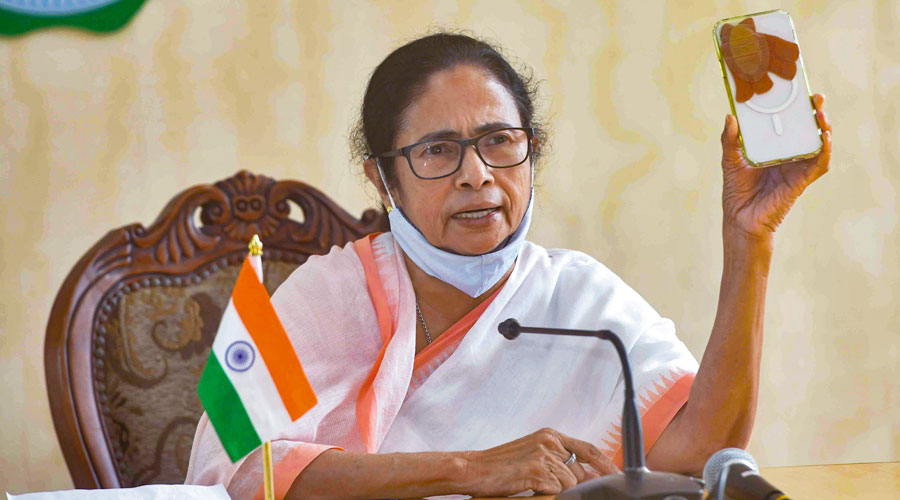Sir — Few knew that the Odisha government has been the sponsor for Indian men’s and women’s hockey teams. In his inimitable style, the chief minister, Naveen Patnaik, maintained a low profile on the subject.
This noble venture resulted in the historic achievements by the Indian teams — the men won the bronze at the Tokyo Olympics while the women missed it by just a whisker. The government of West Bengal, under Mamata Banerjee, should carry forward Patnaik’s example. It should sponsor the Indian men’s and women’s football teams. This would be a fitting recognition of the intense love that Bengalis have for football.
Gautam Choudhuri,
Calcutta
Smart step
Sir — The Central government has taken a step towards doing away with the contentious retrospective tax law of 2012, which was used to raise large tax demands on foreign investors such as Vodafone and Cairn Energy and blamed for vitiating India’s investment climate (“Centre rolls back retro tax rule”, Aug 6). The Union finance minister, Nirmala Sitharaman, introduced the taxation laws (amendment) bill in the Lok Sabha to nullify the retrospective tax clauses that were introduced in 2012 to bring past indirect transfer of Indian assets under the ambit of taxation.
The move comes less than a month after Cairn Energy secured an order from a French court to freeze India’s assets in Paris worth $23 million. According to the proposed amendments, any tax demand made on transactions that took place before May 2012 shall be dropped, and any taxes already collected shall be repaid, albeit without interest. However, in order to be eligible, the concerned taxpayers would have to drop all pending cases against the government and promise not to make any demands for damages or costs. All things considered, the change is a step in the right direction.
K. Ramani,
Tiruchirappalli
Sir — The Central government, like a defaulting debtor, has shown that when push comes to shove, it can be forced to change — it has introduced amendments to the regressive retrospective tax. On this occasion, the push came from two threats: a court notice from France regarding the seizure of the Indian government’s assets in Paris upon an application by Cairn Energy, and the resignation of Kumar M. Birla as the non-executive chairman of Vodafone Idea. Bureaucrats may, of course, argue that these developments gave the government the handle it needed to roll back the ‘retro tax’, a move it had not made thus far out of fear that the Opposition would object to the perceived loss of revenue.
Malay K. Dasgupta,
Calcutta
Rocky road
Sir — The president of Iran must meet with the approval of the country’s supreme religious leader, Ayatollah Khamenei. But for Ebrahim Raisi, who took oath as the eighth president of Iran, a period of challenge has started. Iran is facing a serious financial crisis; the problem is bigger than what transpired at the time of the Shah’s overthrow and the Islamic Revolution in 1978. Raisi has claimed that he will improve the standard of living of ordinary Iranians, but has not mentioned how he will achieve that. Raisi has a history of being a zealot; he also has to contend with Israel and other neighbours. If he shows even a little bit of aggression, the chances of American sanctions against Iran being lifted will diminish. Raisi has a battle ahead of him.
Jang Bahadur Singh,
Jamshedpur
Parting shot
Sir — Dibrugarh has been experiencing the most irregular power supply since July, thus greatly affecting the functioning of households. Students taking online classes suffer, as do owners of small businesses — studios, internet cafes — who depend upon regular power supply for running their outlets. The power cuts during the evening and night result in the absence of street lights which contributes to an uptick in crime around the city. It is high time the authorities took steps to improve the situation. The town dwellers deserve some relief.
Kaustav Dehingia,
Dibrugarh











